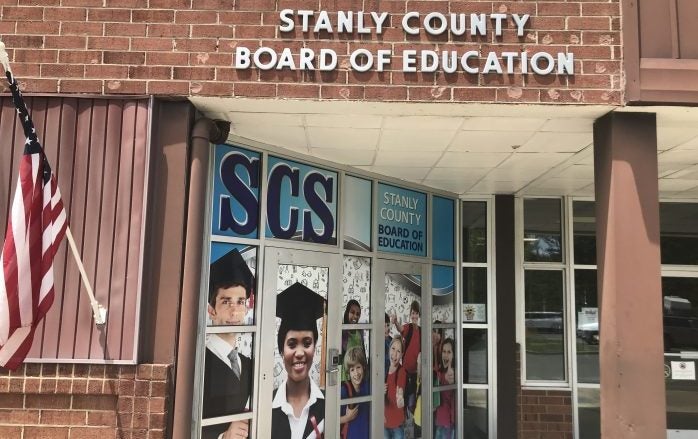New social studies standards to be integrated
Published 3:37 pm Wednesday, March 3, 2021

- Stanly County Schools is headquartered in Albemarle.
|
Getting your Trinity Audio player ready...
|
With the State Board of Education having approved of new social studies standards last month for the state’s K-12 students, Stanly County Schools is working to implement new courses for high school students beginning next school year.
These courses will emphasize the study of more diverse perspectives on history, especially marginalized groups that haven’t always had their experiences discussed in social studies classes.
“What I have seen in my read-through of the standards is there is a focus on equity and equality,” said Dr. Amy Blake-Lewis, assistant superintendent of curriculum and instruction.
She noted that more of an emphasis will be included in regards to groups such as Hispanics, Native Americans and African-Americans.
While social studies courses have historically been taught from a chronological perspective (beginning of American history to the present for example), Blake-Lewis said, students will now explore the content through six indicators: Inquiry-Based, Behavioral Sciences, Civics & Government, Economics, Geography and History.
The new high school courses will be phased-in over a four-year period beginning in August with the 2021-2022 school year, when freshmen will take a Civics Literacy course.
The course “will allow students to examine the ways in which power and responsibility are both shared and limited by the U.S. Constitution and how the judicial, legal, and political systems of North Carolina and the United States embody the founding principles of government,” according to state standards.
Blake-Lewis said civics teachers will tweak their curriculum over the summer to adhere to the revised standards.
For the 2022-2023 school year, sophomores will take a new World History course, which, per state standards, will “examine the historical development of the world and global issues and patterns since 1200.” It will replace a similar course which progressed from the mid-15th century to the present.
Some of the key underlying themes that will be explored in the new course include power and authority, change and continuity, globalization and individual and group identity. One of the standards for the course includes explaining “the reasons for and effects of immigration, forced migration, slavery, and settlement on empires, societies, and indigenous populations around the world, now and in the past.”
For the 2023-2024 school year, juniors will take a new American History course, which will begin with the end of the French and Indian War in 1763 and run through the latest presidential election. The course will replace the two American History courses tracing the development of the United States from colonization through contemporary society.
Underscoring the new focus on diversity of thought, some of the standards for the new American History course include explaining how “the experiences and achievements of minorities and marginalized peoples have contributed to American identity over time” and explaining how “slavery, xenophobia, disenfranchisement and intolerance have affected individual and group perspectives of themselves as Americans.”
Finally, for the 2024-2025 school year, seniors will take an Economics and Personal Finance course designed to better prepare themselves for life. The course will teach students things like how to apply for loans, how to save up to buy a house and how to set up a family budget, Blake-Lewis said.
In preparation for implementation of the new courses, social studies teachers will start developing content enhancement routines over the summer, including identifying available resources that align with the new standards and purchasing other resources that may be needed.
There will also be general conversations with teachers about “that consciousness of being more inclusive in the instructing of social studies courses just to make sure we’re doing our part to still meet the standards and of course meet the needs of our students,” Blake-Lewis said.
For more information about the new social studies standards, people can visit the Department of Public Instruction’s website.




